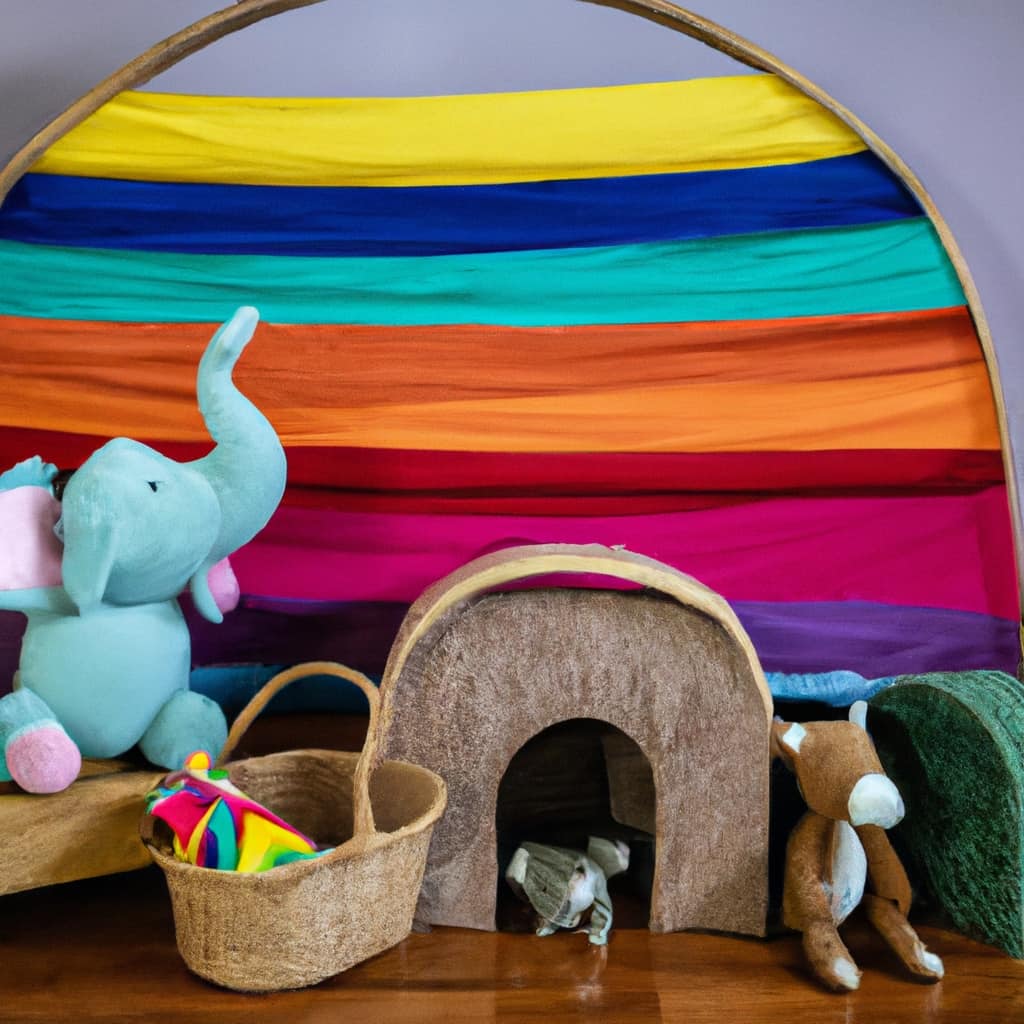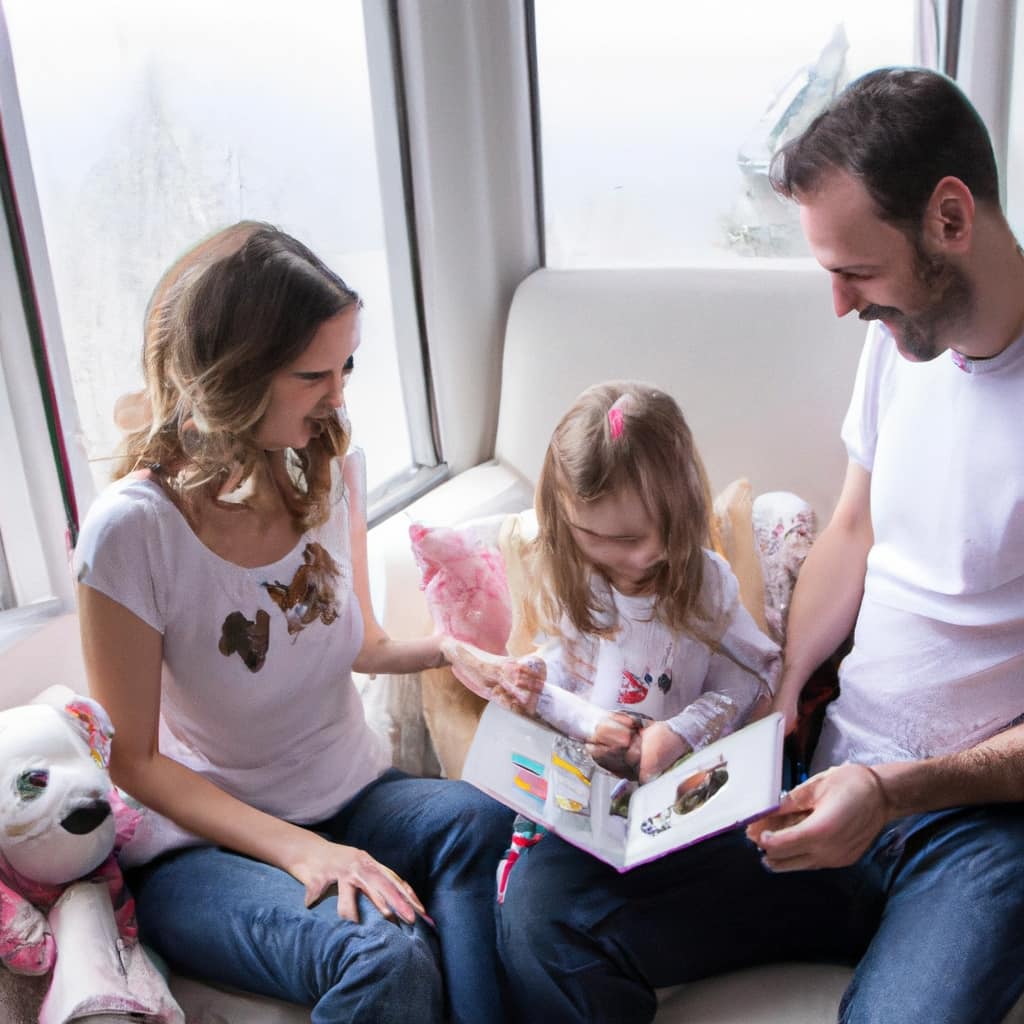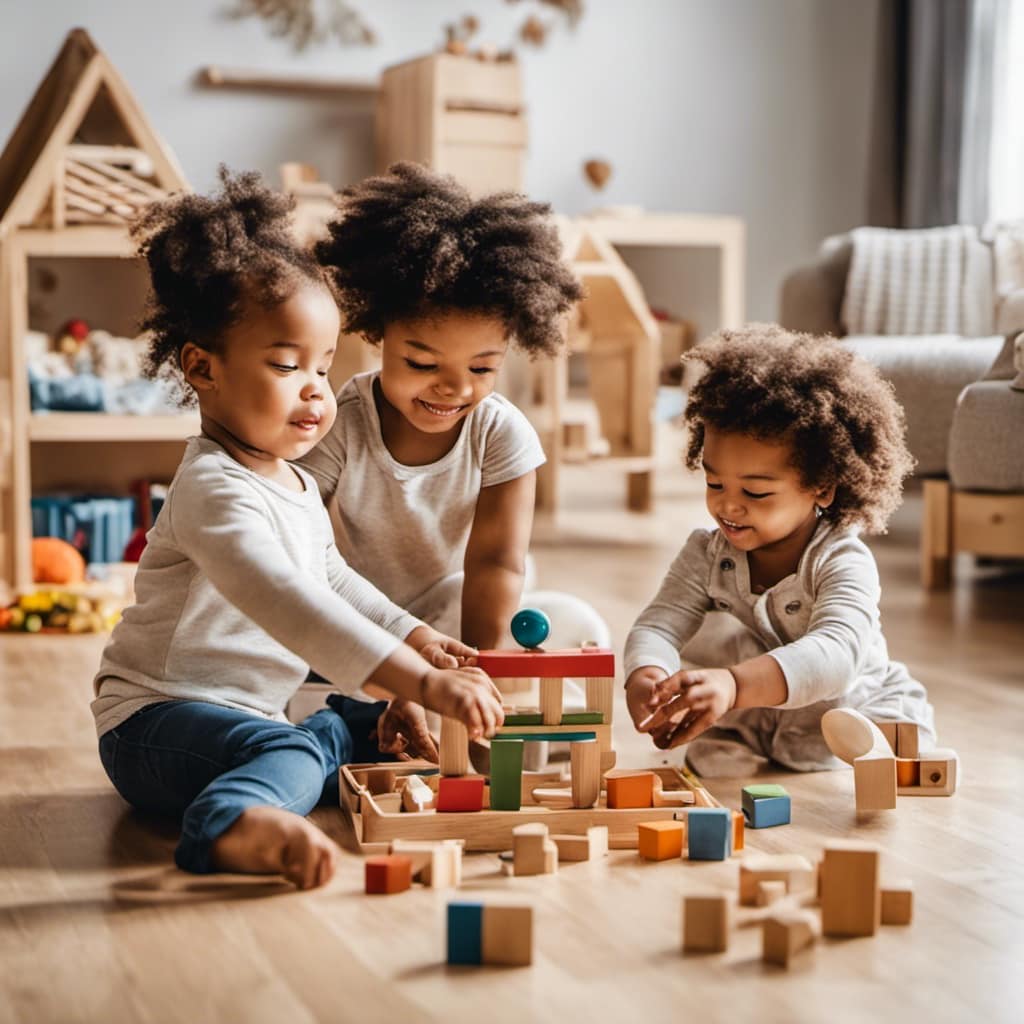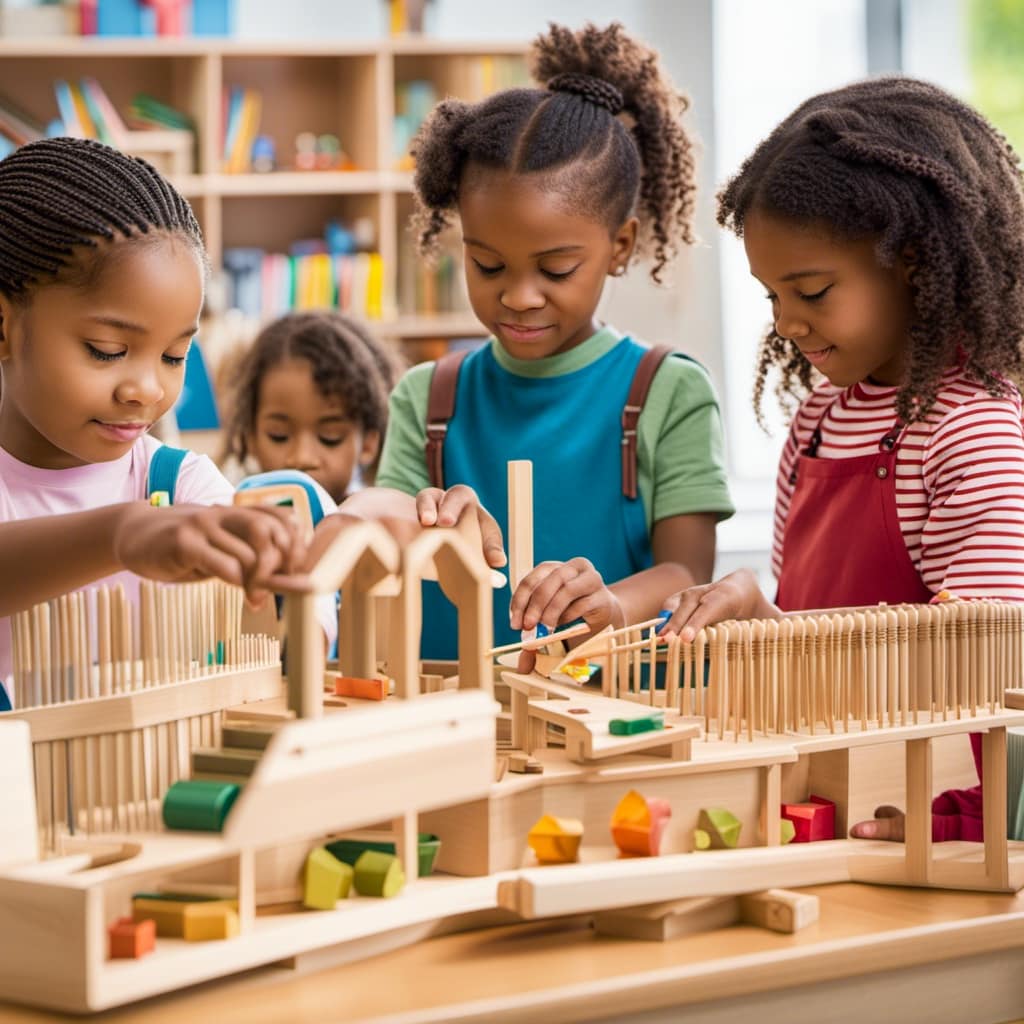As an expert in child development, I am continually astonished by the impact of co-regulation on promoting emotional wellness.
It’s like a dance, where the child and caregiver move together in perfect harmony, supporting each other in regulating emotions and behaviors.
This reciprocal relationship is crucial for developing essential skills like emotional self-regulation, empathy, and effective communication.
When children experience positive co-regulation, they gain higher self-esteem, healthier relationships, and better academic performance.
Join me as we explore the incredible impact of co-regulation on children’s emotional and social well-being.
Key Takeaways
- Co-regulation helps children develop essential skills such as emotional self-regulation, empathy, and effective communication.
- Children who experience positive co-regulation tend to have better emotional regulation skills, higher self-esteem, and healthier relationships.
- Co-regulation promotes prosocial behaviors and better academic performance.
- Co-regulation fosters a strong emotional bond and promotes overall well-being.
The Importance of Co-Regulation in Child Development
Co-regulation plays a crucial role in my child’s development, promoting emotional well-being and fostering healthy relationships. One key aspect of co-regulation is the importance of empathy. Through co-regulation, my child learns to regulate their emotions and behaviors with my support, creating a reciprocal and interactive relationship.

Empathy development is vital in this process, as it helps establish emotional bonding between us. By modeling empathy and providing emotional support, I can help my child develop empathy and enhance their social and emotional development.
Additionally, there are strategies I can implement to promote co-regulation in parenting. Active listening, emotional validation, and positive reinforcement are effective techniques. By incorporating these strategies, I can create a nurturing and supportive environment that fosters my child’s emotional well-being and builds secure attachments.
How Co-Regulation Enhances Emotional Regulation Skills
Developing strong emotional regulation skills is crucial for effectively managing and understanding my feelings. Co-regulation, with its focus on empathy and social competence, plays a vital role in enhancing these skills.
Empathy, in particular, is essential in establishing an emotional bond between individuals. Through co-regulation, children can develop empathy and experience enhanced emotional bonding. This foundation of empathy supports healthy social and emotional development.
Co-regulation also supports social competence by helping individuals navigate and regulate their emotions in a healthy manner. It promotes secure attachments, academic performance, and self-esteem. By engaging in co-regulation, individuals can regulate their emotions more effectively, learn conflict resolution and social problem-solving skills, and enhance their communication abilities.
Overall, co-regulation fosters emotional well-being, builds secure attachments, and supports the development of strong emotional regulation skills.

The Role of Co-Regulation in Building Secure Attachments
Establishing a secure attachment with my caregiver is crucial in building a strong emotional bond. Co-regulation and empathy play a vital role in creating this attachment and fostering a healthy parent-child relationship. Through co-regulation, caregivers provide the support and guidance needed for children to regulate their emotions effectively. This process promotes empathy development, which enhances the emotional bonding between individuals. Research has shown that children who experience positive co-regulation have better emotional regulation skills, higher self-esteem, and healthier relationships. Co-regulation also contributes to the development of self-control and cognitive skills, leading to better academic performance. By engaging in co-regulation techniques such as active listening, emotional validation, and modeling healthy coping strategies, caregivers help children navigate challenges and develop a sense of security and trust. Overall, co-regulation plays a crucial role in building secure attachments and promoting emotional well-being in child development.
| Co-Regulation and Empathy | Co-Regulation and Parent-Child Bonding |
|---|---|
| Enhances emotional bonding | Fosters a strong emotional bond |
| Promotes empathy development | Creates a sense of security and trust |
| Builds healthy relationships | Strengthens the parent-child bond |
| Enhances self-esteem | Nurtures a nurturing environment for growth and development |
| Supports emotional well-being | Promotes overall well-being |
Co-Regulation: Fostering Self-Control and Impulse Management
I can improve my self-control and manage my impulses by engaging in co-regulation techniques such as deep breathing and positive self-talk. Co-regulation promotes self-discipline and fosters empathy development, leading to better emotional well-being in child development.
Here are three key ways co-regulation supports self-control and impulse management:
-
Deep Breathing: Taking deep breaths helps regulate emotions and calm the mind, allowing for better impulse control.
-
Positive Self-Talk: Using positive affirmations and encouraging words can help reframe thoughts and manage impulsive behaviors.
-
Emotional Validation: Recognizing and validating our emotions in a non-judgmental way promotes self-awareness and helps us make conscious choices rather than acting on impulse.

The Impact of Co-Regulation on Cognitive Development
Co-regulation positively impacts cognitive development by enhancing problem-solving skills and promoting academic performance. Research shows that when caregivers engage in co-regulation with children, it provides a supportive environment for learning and problem-solving. By offering guidance, structure, and emotional support, caregivers help children develop critical thinking skills and gain confidence in tackling challenges independently.
Co-regulation also promotes a sense of mastery and accomplishment, which contributes to better academic performance. Through joint problem-solving activities, caregivers help children develop effective problem-solving skills. This not only improves cognitive abilities but also fosters a sense of resilience and adaptability.
Strategies for Effective Co-Regulation in Child Development
Using techniques such as active listening and positive reinforcement, caregivers can create a nurturing environment that supports effective co-regulation in child development.
Here are three strategies for promoting healthy emotional development through co-regulation techniques:
-
Active Listening: By actively listening to children’s thoughts, feelings, and concerns, caregivers can show empathy and validate their experiences. This helps children feel understood and supported, fostering emotional well-being.
-
Positive Reinforcement: Providing praise and rewards for positive behaviors encourages children to regulate their emotions effectively. This reinforces desired behaviors and helps them develop self-control and emotional resilience.

-
Sensory Regulation: Engaging in sensory activities, such as deep breathing exercises or using sensory tools like stress balls or fidget spinners, can help children calm their bodies and regulate their emotions.
The Long-Term Benefits of Co-Regulation for Emotional Well-Being
In my research on effective co-regulation strategies in child development, I have discovered the significant role that empathy plays in this process.
Empathy is the ability to understand and share the feelings of another person, and it plays a crucial role in establishing emotional bonds between individuals. When children develop empathy through co-regulation, they experience enhanced emotional bonding and connection with their caregivers. This solid foundation of empathy provides the building blocks for healthy social and emotional development.
Furthermore, there is a strong connection between co-regulation and social competence. Children who engage in co-regulation with their caregivers are more likely to develop better emotional regulation skills, higher self-esteem, and healthier relationships.
Co-regulation fosters the development of social problem-solving skills and enhances communication abilities. It creates a nurturing environment for growth and development, promoting overall well-being and building secure attachments. Through co-regulation, individuals learn how to navigate and regulate their emotions in a healthy manner, leading to improved social competence and emotional well-being.
Frequently Asked Questions
How Does Co-Regulation Impact a Child’s Social Skills and Relationships?
Co-regulation positively impacts a child’s social skills and relationships by promoting better emotional regulation skills, which in turn improve peer interactions. It helps children navigate emotions, fostering healthier connections and enhancing overall well-being.

What Are Some Practical Strategies Caregivers Can Use to Practice Co-Regulation With Their Children?
Practical strategies for caregivers to practice co-regulation with their children include active listening, emotional validation, modeling healthy coping strategies, and setting consistent boundaries. These strategies benefit caregivers by building stronger bonds and promoting emotional well-being.
Can Co-Regulation Be Beneficial for Children With Special Needs or Developmental Challenges?
Co-regulation can be highly beneficial for children with special needs or developmental challenges, such as autism or ADHD. It helps them develop emotional self-regulation, social skills, and a sense of security and trust.
How Does Co-Regulation Support Children in Managing Stress and Adversity?
Co-regulation supports children in managing stress and adversity by providing emotional support and teaching effective coping strategies. It builds resilience and coping skills, helping children navigate challenges and develop a sense of security.
What Are Some Potential Long-Term Effects of a Lack of Co-Regulation in Childhood?
A lack of co-regulation in childhood can lead to long-term effects such as emotional dysregulation and difficulty forming secure attachments. These challenges can impact overall emotional well-being and the ability to form healthy relationships.
Conclusion
In conclusion, the power of co-regulation in fostering emotional well-being in child development is undeniable.
Through the reciprocal and interactive relationship between a child and caregiver, co-regulation helps cultivate essential skills such as emotional self-regulation and effective communication.

This nurturing process not only promotes prosocial behaviors and better academic performance but also creates a strong emotional bond and a sense of safety and security in relationships.
The long-term benefits of co-regulation on mental health and academic success make it a vital aspect of child development.
Co-regulation truly triumphs in transforming tiny tots into emotionally resilient individuals.










